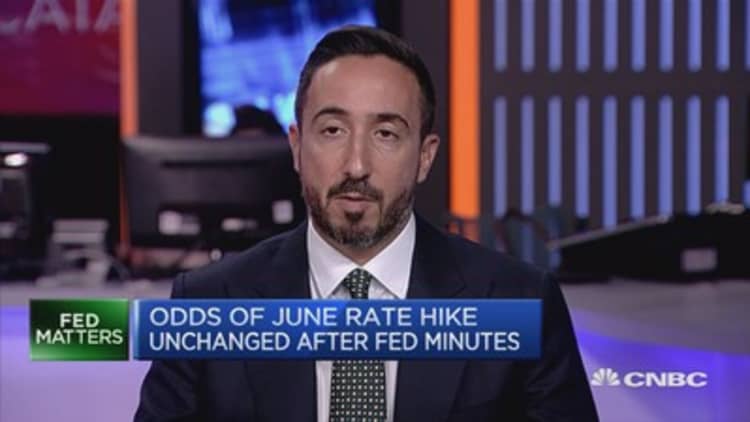
The chief economist at Standard Chartered has offered his take on what currencies will be most affected should the U.S. Federal Reserve aggressively tighten interest rates.
"I remember writing a paper in April 2015 and I said who's vulnerable if the Fed shocks? said Marios Maratheftis on Friday.
"And if the Fed shocks, the main shock absorber in emerging markets is the currency. And I find the most vulnerable currencies from Fed shocks are the Turkish lira, the Indonesian rupee, the Brazilian real and the Malaysian ringgit."
Maratheftis said a Federal Reserve interest rate hike in June is priced in as far as emerging markets are concerned.
He argued the Federal Reserve wants to hike rates because it needs the flexibility to deal with any economic slowdown.
"If you expect a boom in the U.S. economy you will be disappointed. The reflation trade is not going to materialize.
"The U.S. economy is doing a little bit worse than most people realise but the Fed wants to hike," he added.

Maratheftis said the Fed could raise rates 3 times this year and run down its $4.5 trillion dollar balance sheet at the same time.
The economist added that he doesn't foresee a multi-year hiking cycle as the Fed's tightening will be "short and front loaded".
Since the financial crisis, the Fed has bought up bonds to create artificial scarcity and help keep interest rates low.
In its most recent set of minutes, published Wednesday, the central bank indicated it had broad agreement on how it would start to unwind its $4.5 trillion balance sheet.
In effect the Fed said it supports a gradual halt to the reinvestment of principal from maturing securities.


